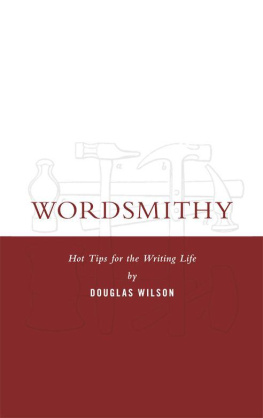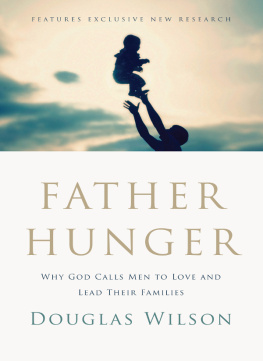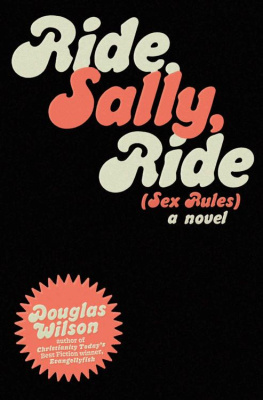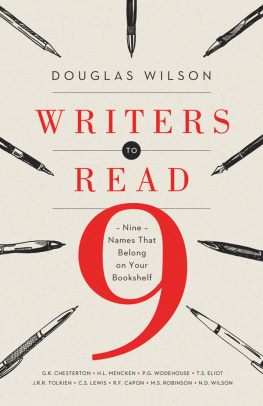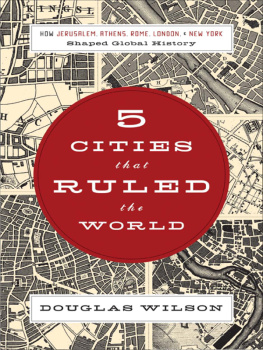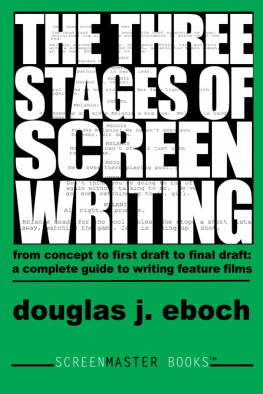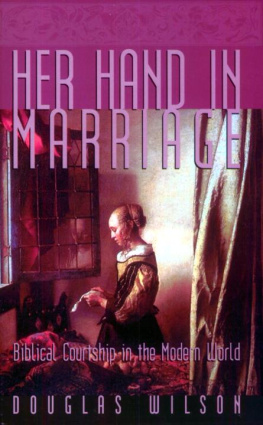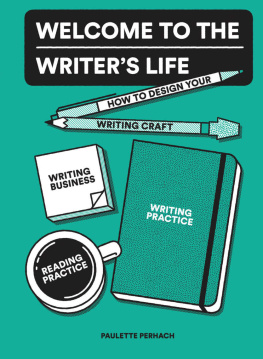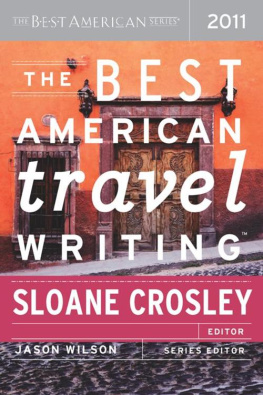Douglas Wilson - Wordsmithy: Hot Tips for the Writing Life
Here you can read online Douglas Wilson - Wordsmithy: Hot Tips for the Writing Life full text of the book (entire story) in english for free. Download pdf and epub, get meaning, cover and reviews about this ebook. year: 2011, publisher: Canon Press, genre: Art. Description of the work, (preface) as well as reviews are available. Best literature library LitArk.com created for fans of good reading and offers a wide selection of genres:
Romance novel
Science fiction
Adventure
Detective
Science
History
Home and family
Prose
Art
Politics
Computer
Non-fiction
Religion
Business
Children
Humor
Choose a favorite category and find really read worthwhile books. Enjoy immersion in the world of imagination, feel the emotions of the characters or learn something new for yourself, make an fascinating discovery.
- Book:Wordsmithy: Hot Tips for the Writing Life
- Author:
- Publisher:Canon Press
- Genre:
- Year:2011
- Rating:3 / 5
- Favourites:Add to favourites
- Your mark:
- 60
- 1
- 2
- 3
- 4
- 5
Wordsmithy: Hot Tips for the Writing Life: summary, description and annotation
We offer to read an annotation, description, summary or preface (depends on what the author of the book "Wordsmithy: Hot Tips for the Writing Life" wrote himself). If you haven't found the necessary information about the book — write in the comments, we will try to find it.
Wordsmithy: Hot Tips for the Writing Life — read online for free the complete book (whole text) full work
Below is the text of the book, divided by pages. System saving the place of the last page read, allows you to conveniently read the book "Wordsmithy: Hot Tips for the Writing Life" online for free, without having to search again every time where you left off. Put a bookmark, and you can go to the page where you finished reading at any time.
Font size:
Interval:
Bookmark:
Douglas Wilson
Published by Canon PressP.O. Box 8729, Moscow, ID 83843800.488.2034 | www.canonpress.comDouglas Wilson, Wordsmithy: Hot Tips for the Writing LifeCopyright 2011 by Douglas Wilson.Cover design by David Dalbey.Interior design by Laura Storm.Printed in the United States of AmericaAll rights reserved. No part of this publication may be reproduced, storedin a retrieval system, or transmitted in any form by any means, electronic,mechanical, photocopy, recording, or otherwise, without prior permissionof the author, except as provided by USA copyright law.Library of Congress Cataloging-in-Publication DataWilson, Douglas, 1953-Wordsmithy : hot tips for the writing life / by Douglas Wilson.p. cm.ISBN 978-1-59128-099-61. Authorship. I. Title.PN145.W54 2011808.02--dc23201102809111 12 13 14 15 16 17 18 9 8 7 6 5 4 3 2 1For Toby Sumpter,
a good friend with good words.
In the world of public speaking, it is a commonplace foryoung aspirants to the lectern to be told something like tellthem what youre going to tell them, tell them, and then tellthem what you told them. This admirable advice, strong onrepetition, is counsel I intend to follow here. Repetition is asound pedagogical device, even for those who do not thinkof themselves as thick-skulled, in whose ranks we might haveto include at least some aspiring writers.
In this introduction, I would like to give a summary overviewof the seven main exhortations I would like to deliver. Inthe main body of this small book, I would like to expand onthese seven points, extracting seven more points out of eachof them. And then in the conclusion, I will harmoniouslyallude to the whole business once again. But the conclusionwill be so graceful, youll scarcely notice it.
The Anglo-Saxons had a great word for the right word,the word that you need right now, when another one simplywould not do. That word is wordriht. Think of it as the motjuste, not that they would put it like that. Who could imagineBeowulf talking that way to Hrothmund, nest-ce pas? No onereally, although French did come into English via the Normaninvasion, and Norman is short for Northman, a bunchof whom had at an early time in the proceedings come downinto France from Beowulfs neck of the woods. Still anotherbit of advice that I should have put in this book would be toavoid tangents. Dont get distracted. Stay on point.
So in no particular order of importance, I would encouragethose who want to learn the wordriht life to approximatesomething like the following:
1. Know something about the world, and by this I meanthe world outside of books. This might require joining theMarines, or working on an oil rig or as a hashslinger at atruck stop in Kentucky. Know what things smell like outthere. If everything you write smells like a library, then yourprospective audience will be limited to those who like thesmell of libraries.
2. Read. Read constantly. Read the kind of stuff you wishyou could write. Read until your brain creaks. Tolkien saidthat his ideas sprang up from the leaf mold of his mind: yourreadings are the trees where your fallen leaves would comefrom. Mind mulch. Cognitive compost.
3. Read mechanical helps. By this I mean dictionaries,etymological histories, books of anecdotes, dictionaries offoreign phrases, books of quotations, books on how to writedialogue, and so on. The plot will usually fail to grip, so justread a page a day. If you think it makes you out to be toomuch of a word-dork, then dont tell anybody about it. Letskeep it between you and me.
4. Stretch before your routines. If you want to write Italiansonnets, try to write some short stories. If you want towrite a few essays, write a novel, or maybe a novella if youare pressed for time. If you want to write haiku, then limberup with opinion pieces for The Washington Post.
5. Be at peace with being lousy for a while. Chestertononce said that anything worth doing was worth doing badly.He was right. Only an insufferable egoist expects to be brilliantfirst time out. Some writersthose who live charmedliveshave been brilliant first time out, but this happens sorarely that we shouldnt care who they are. You cant copythem anyway. You can copy those who got good.
6. Learn other languages, preferably languages that areupstream from ours. This would include Greek, Latin, andAnglo-Saxon. The brain is not a shoebox that gets full, butis rather a muscle that expands its capacity with increased use.The more you know, the more you can know. The more youcan do with words, the more you can do. As it turns out.
7. Keep a commonplace book. Write down any notablephrases that occur to you or that you come across. If it is onethat you have found in another writer, and it is striking, thenquote it, as the fellow said, or modify it to make it yours. IfChandler said that a guy had a cleft chin you could hide amarble in, that should come in useful sometime. How couldit not come in useful? If Wodehouse said somebody had anaccent you could turn handsprings on, then he might havebeen talking about Jennifer Nettles of Sugarland. Tinkerwith stuff. Get your fingerprints on it.
Know when to stop.
The first tip was to get out more.
Know something about the world, and by this I mean theworld outside of books. This might require joining theMarines, or working on an oil rig or as a hashslinger at atruck stop in Kentucky. Know what things smell like outthere. If everything you write smells like a library, thenyour prospective audience will be limited to those wholike the smell of libraries.A writer should have some kind of real life ballast. Here areseven tips that will help explain that first tip. And, weatherpermitting, we may do the same thing with the other six aswell. Each of our first seven tips is a Russian doll, lined up ona mantelpiece for you, and when we take each one apart, weshould find seven additional points inside each one. At leastyou should find them if we did this right.
Real life duties should be preferred over real life tourism.Taking care of your preschoolers or being deployed with theSeventh Fleet is far to be preferred over purchasing a backpackand heading off to find America, or even worse, yourself.
Look at the world, and try not to look at yourself lookingat the world. Your readers may well be interested in yourdescription of the worldand they will learn plenty aboutyou in the processbut they will not be all that interested inyour descriptions of yourself directly, even though you may beusing the outside world as the scenic backdrop for your juniorhigh melodrama of a tortured and misunderstood soul.
When you discharge your duties in the real world you arelearning the concept, and this helps you understand how todischarge your duties to your readers. In the task of writingand reading, the initiative in doing ones duty lies with you,the writer. You are the one who started the whole thing bywriting whatever it was you wrote, and so the responsibilityis yours. You started it. Your duty as a writer is the same asthe respective duties of the plumber, the knee surgeon, thecomputer repairman, and the architect, which is to make itwork. Moreover, your duty is to make it work for the customer,which in this case is the reader. Readers have responsibilitiestoo, and that would be a fine topic for another book, but inthe meantime your job is not to make them do their duty rawas they read your writing. Your job is to make it as pleasantas you can for them.
Font size:
Interval:
Bookmark:
Similar books «Wordsmithy: Hot Tips for the Writing Life»
Look at similar books to Wordsmithy: Hot Tips for the Writing Life. We have selected literature similar in name and meaning in the hope of providing readers with more options to find new, interesting, not yet read works.
Discussion, reviews of the book Wordsmithy: Hot Tips for the Writing Life and just readers' own opinions. Leave your comments, write what you think about the work, its meaning or the main characters. Specify what exactly you liked and what you didn't like, and why you think so.

